Best Chainsaw Bar and Chain Oil
- January 15, 2024
- 2 comment
In the realm of chainsaw maintenance, the quality of bar and chain oil plays a pivotal role in ensuring the longevity and efficiency of your saw. A common dilemma for many is whether splurging on a $30 gallon of oil significantly trumps the performance of its $10 counterpart. To address this, a comprehensive test was designed, comparing various oils not only in their lubricating capabilities but also in their ability to keep the bar and chain cool, their flow at different temperatures, and their overall composition.
Methodology
For this experiment, a nearly new STIHL MS 170 chainsaw was used – a model renowned for its victory in a previous review. To maintain consistency, six new bars and chains were acquired from the same dealership, each paired exclusively with one type of bar and chain oil. The oils were then subjected to a series of tests:
- Lubrication and Cooling Test: The oils were evaluated on their ability to lubricate and cool during extensive use.
- Flow Test: Comparing how the oils flowed at both summer and winter temperatures.
- Laboratory Analysis: Sending oil samples to an independent lab for ingredient comparison.
- Wear Test: Assessing the wear on the chains after running a full tank of gas through the saw.
The Contenders and Their Performances
Harvest King Bar Chain Oil ($10/gallon)
Formulated with high-quality base oils and additives, it demonstrated excellent wear protection, leading to minimal wear (1.89 mm) and the coolest bar temperature (250° F).
Mobile Delvac SAE 30 Motor Oil($16/gallon)
While not specifically a bar chain oil, it was included for comparison. It performed moderately well but resulted in higher wear (2.2 mm) and a hotter bar temperature (280° F).
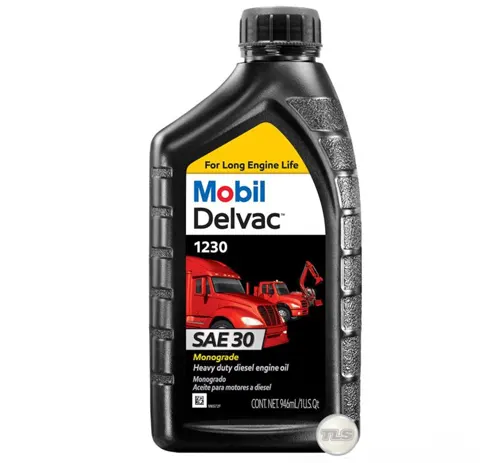
Husqvarna X-Guard Premium All-Season Bar Chain Oil ($25/gallon)
Despite its high price, it underperformed, showing the most wear (2.22 mm) and the highest bar temperature (310° F).
STIHL Platinum ($26/gallon) and Echo Brands ($27/gallon)
Both these oils displayed high wear levels and high bar temperatures, indicating less effective lubrication and cooling properties.
Oregon Brand ($28/gallon)
It performed better than some pricier options, with less wear (1.86 mm) and a moderate bar temperature (291° F).
Additional Insights
- Flow Test at Different Temperatures: Harvest King outperformed others in flow, particularly in cold conditions, suggesting better performance in diverse climates.
- Laboratory Analysis: Revealed that Mobile Delvac had the highest level of detergent and dispersant, beneficial for keeping the chain oiler clean. It also had a robust anti-wear additive package, explaining its superior performance in the lubricity test. Surprisingly, Stihl Bar chain oil showed a lack of anti-wear additives.
- Evaporative Loss Test: This test evaluated each oil’s resistance to evaporation at high temperatures (around 330° F). Oregon oil showed the least evaporative loss, an essential factor for maintaining lubrication during intense use.
Conclusions
After rigorous testing and analysis, the results were eye-opening:
- Overall Winner: Harvest King Bar Chain Oil emerged as the top performer. Its affordability coupled with excellent wear protection, effective lubrication, and cooling properties made it a standout choice.
- Runner-Up: Mobile Delvac SAE 30 Motor Oil, though not a specialized bar and chain oil, showed commendable performance, particularly in lubricity and flow tests.
- Best for High Temperatures: Oregon Bar Chain Oil proved its mettle in the high-temperature evaporative loss test, indicating its suitability for intense cutting tasks.
Final Thoughts
The tests debunked the myth that more expensive oils always offer better performance. The Harvest King, a budget-friendly option, outshined its pricier counterparts. However, it’s essential to note that while motor oils like Mobile Delvac can be used in a pinch, they lack the tackiness of specialized bar and chain oils, which is crucial for sustained lubrication.
In conclusion, choosing the right bar and chain oil can significantly impact your chainsaw’s performance and longevity. This study highlights that sometimes, the best product may not be the most expensive one on the shelf, offering valuable insight for chainsaw users looking to make an informed decision.
FAQs
- Why is the tackiness of a bar and chain oil important?
Tackiness in bar and chain oil is crucial because it helps the oil adhere to the chain and bar, ensuring continuous lubrication. This adherence reduces the risk of the oil flinging off due to the high speed of the chainsaw, thus preventing excessive wear and overheating. - Can I use regular motor oil as a substitute for bar and chain oil in my chainsaw?
While regular motor oil, like Mobile Delvac SAE 30, can be used in a pinch, it’s not recommended for long-term use. Motor oils lack the tackiness and specific additive packages designed for the high-friction environment of chainsaws, which could lead to increased wear and reduced efficiency. - How does temperature affect the performance of bar and chain oils?
The viscosity of bar and chain oils can vary with temperature. In colder climates, oils can thicken, impeding flow and reducing lubrication efficiency. Conversely, in hotter conditions, oils may become too thin, providing less protection against wear. The flow tests in various temperatures in the article demonstrate this effect. - What was the most surprising finding from the chainsaw bar and chain oil showdown?
One of the most surprising findings was that the less expensive Harvest King Bar Chain Oil outperformed more expensive options, challenging the assumption that a higher price always equates to better quality in bar and chain oils. - Is there a correlation between the price of bar and chain oils and their performance?
The study revealed that price is not a direct indicator of performance. While some expensive oils performed poorly, a relatively cheaper option like Harvest King provided superior lubrication and wear protection. - Why was the evaporative loss test important in comparing bar and chain oils?
The evaporative loss test is crucial because it simulates the oil’s resistance to high temperatures, like those encountered during intense chainsaw use. Oils that resist evaporation maintain their lubricating properties better under high heat, thus protecting the chainsaw bar and chain more effectively. - What should I consider when choosing a bar and chain oil for my chainsaw?
When selecting a bar and chain oil, consider factors like the oil’s viscosity, tackiness, temperature performance (both in hot and cold conditions), wear protection capabilities, and compatibility with your specific chainsaw model. - How does the composition of bar and chain oil affect its performance?
The composition, particularly the additive package in bar and chain oil, greatly influences its performance. Additives can enhance the oil’s ability to withstand high pressure, reduce wear, resist heat, and maintain optimal flow in different temperatures. A well-composed oil will provide better lubrication and protection for the chainsaw’s bar and chain. - Can the wrong type of bar and chain oil damage my chainsaw?
Using the wrong type of oil, especially oils not designed for high-speed, high-friction applications like chainsaws, can lead to inadequate lubrication. This can cause increased wear and tear, overheating, and potentially shorten the lifespan of your chainsaw’s components. - How often should I check and refill the bar and chain oil in my chainsaw?
It’s advisable to check the bar and chain oil level each time you refuel your chainsaw. Ensuring that there is adequate oil is critical for the smooth operation and longevity of the saw. If the oil level is low, refill it before continuing with your work.
Join the discussion below by sharing your experiences, tips, or reviews. Your contributions help others make informed decisions and navigate their chainsaw choices with confidence. Let’s build a community of shared knowledge for all wood-cutting enthusiasts!

David Murray
Forestry AuthorI'm David Murry, a forestry equipment specialist with a focus on chainsaw operation. With over 13 years of experience, I've honed my skills in operating and maintaining a wide range of machinery, from chainsaws to log splitters. My passion for the outdoors and commitment to sustainable forestry drive my work, which emphasizes safety, efficiency, and staying updated with industry advancements. Additionally, I'm dedicated to sharing my expertise and promoting environmental awareness within the forestry community.
2 comments
Excellent post! I really appreciate all the helpful information that you put in there. You answered a lot of questions which was extremely helpful. Thank you.

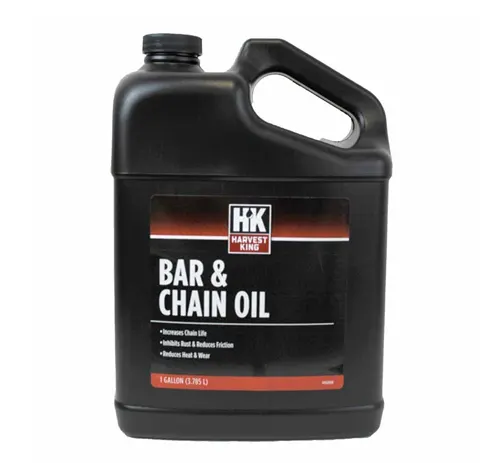
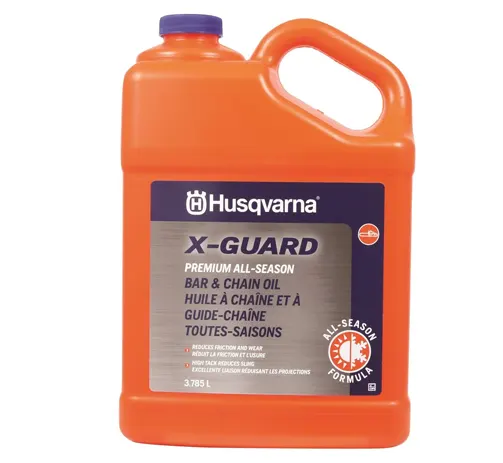
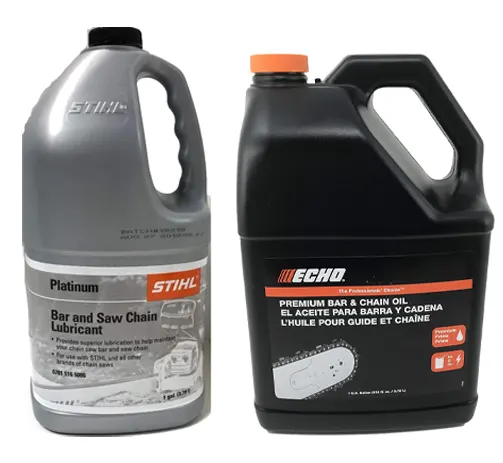
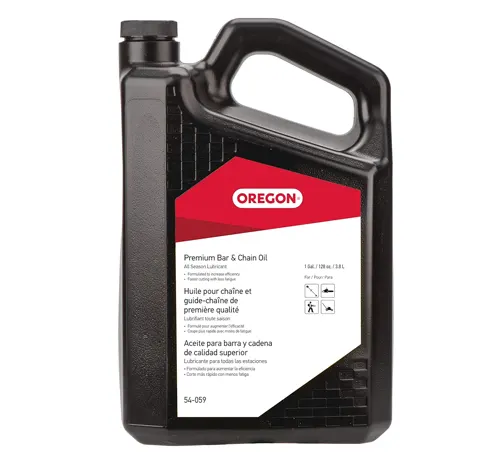












It's an amazing coincidence that these are the same oils and same testing that Project Farm did on his youtube channel. And even more amazing is that the results are the same! Wow! What a coincidence! And this information was posted only a week after Project Farm. It's uncanny. I almost expected him to give credit to Project Farm for his work.
Tim Burr
August 12, 2024 10:58 pm